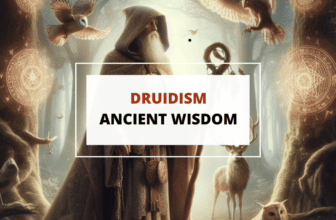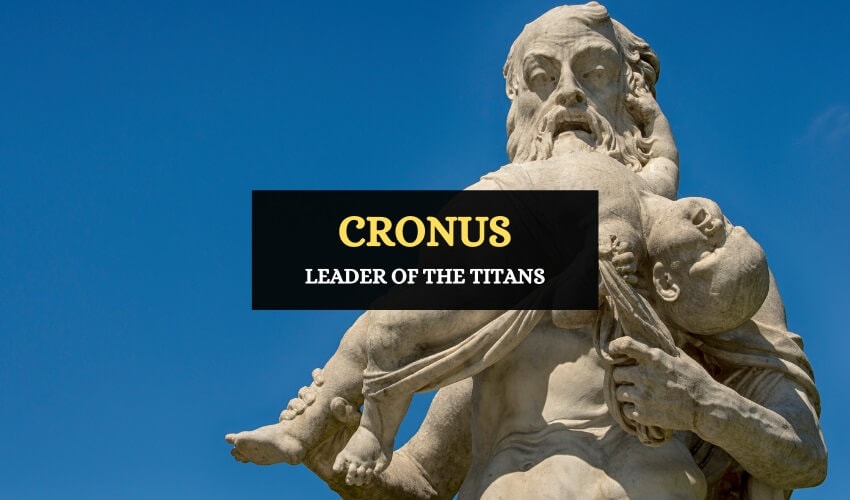
Table of Contents
Before the time of the Olympians, the ruthless Titan Cronus (also spelled Kronos or Cronos) was the god of time and the ruler of the universe. Cronus was a powerful tyrant, but his rule during what is known as the Golden Age of Greek mythology was prosperous. Sometimes a tall, strong man with a sickle, and at other times an old bearded figure, Cronus was mighty but it seems he was also very insecure. Let’s take a look at the mythology of Cronus, the most terrible of the Titans according to Hesiod.
The Myth of the Titan Cronus
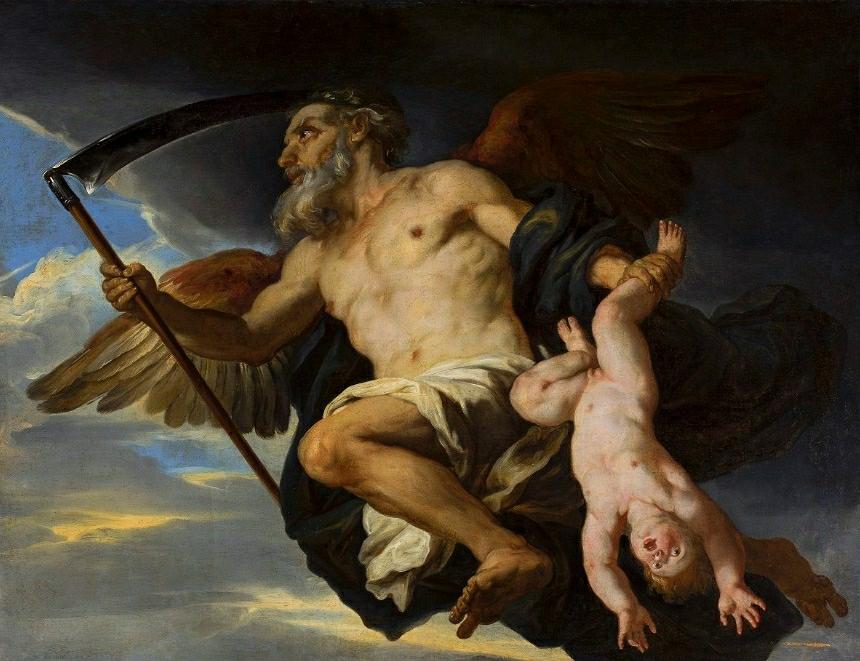
Cronus was the youngest of the twelve Titans born from Gaia, the personification of earth, and Uranus, the personification of the sky.
Uranus the Tyrant
Like many of the powerful Greek gods, Cronus also had issues with his father. Uranus was the ruler of the universe, but he was irrational and evil. He was afraid that one of his children would someday overthrow him, and so he forced Gaia to keep their children – the Titans, the Cyclopes, and the Hecatoncheires – inside her. Gaia, distressed by the pain and oppression of her children, created a great sickle and persuaded Cronus, the youngest Titan, to challenge his father.
Cronus Attacks Uranus
Cronus waited for his father, and when he came to lie with Gaia, he attacked him with the sickle and castrated him. In this way, Cronus separated the sky from the earth. From the blood that spilled onto the Earth when Uranus was castrated, several sets of beings were born, including the Giants, the Erinyes, and the Meliae (ash-tree nymphs). The severed genitals of Uranus were thrown into the sea, producing a white foam from which Aphrodite, the goddess of love and beauty, emerged.
The Prophecy
When Uranus was unmanned, he cursed his son saying that he too would suffer the same destiny as his father. One day, Cronus would be dethroned by one of his sons. Cronus then went on to free his siblings, the Cyclopes and the Hecatoncheires, from Gaia’s womb and ruled over the Titans as their king. However, his father’s prophecy came true when one day, his own son Zeus, overthrew him.
Cronus and the Golden Age
Although later myths would go on to depict Cronus as an unmerciful being, the tales of the pre-Hellenistic Golden Age tell a different story.
Cronus’ reign was a plentiful one. Although humans had already been created, they were primitive beings who lived in tribes. Peace and harmony were the foremost markers of the rule of Cronus in a time where there was no society, art, government, or wars. The golden age is known as the greatest of all human eras, where gods walked on earth among men, and life was teeming and peaceful. And it was ruled over by Cronus.
After the Hellenes arrived and imposed their traditions and mythology, Cronus began to be depicted as a destructive force that ravaged everything on his way. According to subsequent myths, the Titans were the first enemies of the Olympians, and this gave them their dominant role as the villains of Greek mythology.
Cronus’ Children
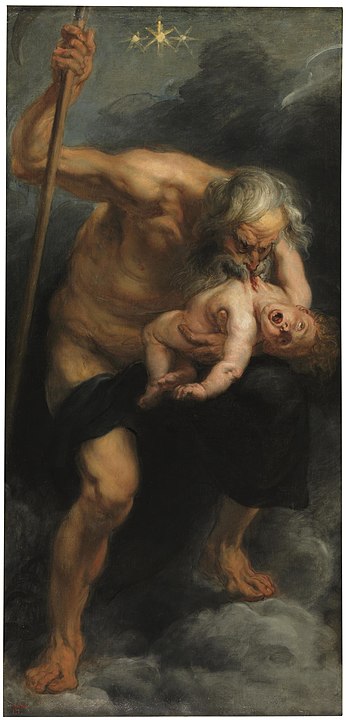
Cronus wed his sister Rhea, and together they ruled the world after Uranus’ demise. They sired six children: Hestia, Demeter, Hera, Hades, Poseidon, and Zeus in that order.
Despite a period of peaceful and effective rule, Cronus, fearful of his father’s prophecy, started to emulate Uranus’s behavior. He swallowed all his children immediately after they were born to prevent any of them from dethroning him.
However, Rhea would not have this. With her mother Gaia’s help, she managed to hide the last child, Zeus, and gave Cronus a rock wrapped in clothes to eat instead. Zeus would grow to be the one to fulfill Uranus’ prophecy.
Dethroning Cronus
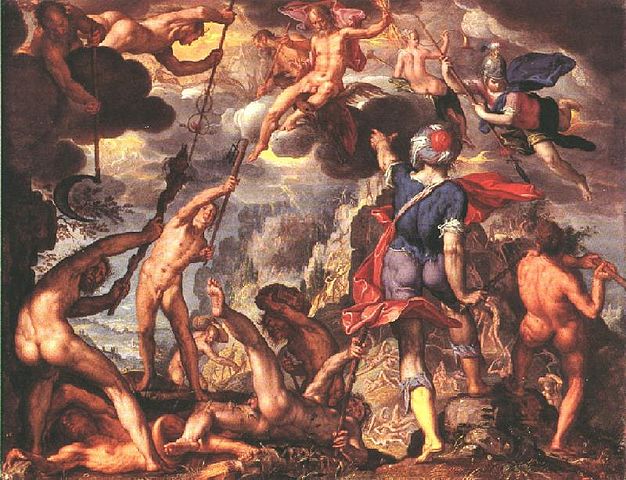
Zeus eventually challenged his father, managing to save his siblings by making Cronus disgorge them, and together they fought Cronus for the rule of the cosmos. After a cataclysmic battle that rocked both heaven and earth, the Olympians emerged victorious, leading to Cronus losing his power.
So, what happened to Cronus after the war? He was sent to the Tartarus, a deep abyss of torment, to remain there imprisoned as a powerless being with the other Titans. In other accounts, Cronus was not sent to the Tartarus but instead stayed as a king in Elysium, the paradise for immortal heroes.
Cronus could not break the cycle of sons dethroning fathers in Greek mythology. According to Aeschylus, he passed on his curse to Zeus with the prophecy that he would suffer the same fate. But Zeus was able to deflect all attempts at being overthrown, and continued to rule as the most powerful god.
Cronus vs. Chronos: Are They the Same?
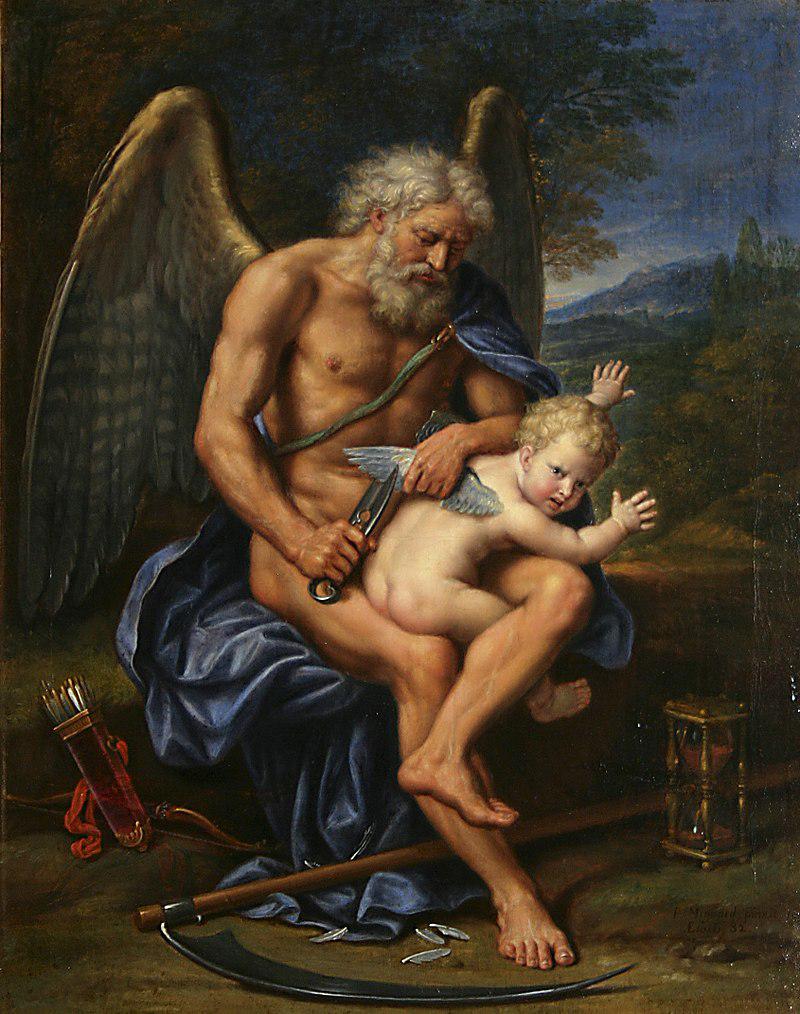
Cronus and Chronos are two distinct figures in Greek mythology, but their names are often confused due to their similarity.
Cronus, as we’ve already seen, is the Titan ruler who was later dethroned by his son Zeus. Chronos, on the other hand, is the personification of Time in ancient Greece. His name comes from the Greek word for chronological or sequential time, Chronos, from which we get our modern words like chronology, chronometer, anachronism, chronicle, and synchrony to name a few.
Unlike Cronus, Chronos was not depicted in human form, but as an incorporeal god, serpentine in form with three heads – a man, a bull, and a lion. Chronos was considered to have control over time and its passage. He was not involved in any of the myths involving the Titans or the Olympian gods.
In the Latin-speaking world, the two figures were conflated, causing a lot of confusion! But they’re separate figures with different myths. This is also why although Cronus is sometimes called the father of time, he isn’t. That honor goes to Chronos.
Symbols of Cronus
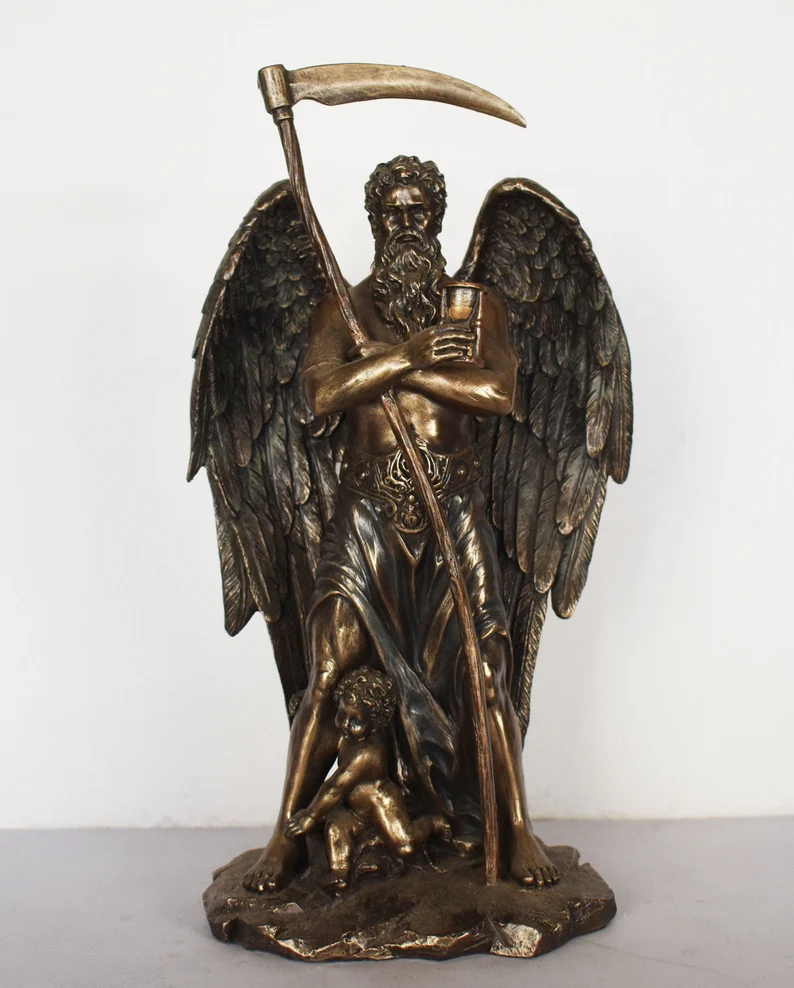
Cronus is associated with various concepts, including harvest, agriculture, prosperity, abundance, and fertility. His most significant symbol is the sickle.
- Sickle or Scythe: The sickle or scythe is the most iconic symbol of Cronus. It represents the instrument he used to castrate his father, Uranus. Given that Cronus is also associated with the concept of time, the scythe can be seen as a symbol of the “harvest” of time, often linked with death and the end of life cycles.
- Harvest: Given the abundance of his rule in the Golden Age, Cronus was also the god of harvest and prosperity. As a god of the harvest in some interpretations, symbols like grain, fruit, and the cornucopia (a horn filled with fruits and grains) can be associated with Cronus.
Cronus in Modern Times
After the rise to power of the Olympians, the benevolence and the generosity of Cronus were forgotten, and his role as the antagonist overtook everything else. This association continues today. Cronus remains popular today as an evil background figure in Greek mythology.
In Rick Riordan’s saga Percy Jackson and the Olympians, Cronus tries to return from Tartarus to declare war once again on the gods with the help of a group of demigods. In the series Sailor Moon, Sailor Saturn has the powers of Cronus/Saturn and his connection to the harvests.
Wrapping Up
Although he is seen as one the greatest antagonists of Greek mythology, the King of the Titans may not have been that bad after all. With the most prosperous times in human history ascribed to his reign, Cronus seems to have been a benevolent ruler at one stage in time. His role as the usurper of power against Uranus and later as the antagonist against whom Zeus fought makes him one of the most important characters of Greek mythology.
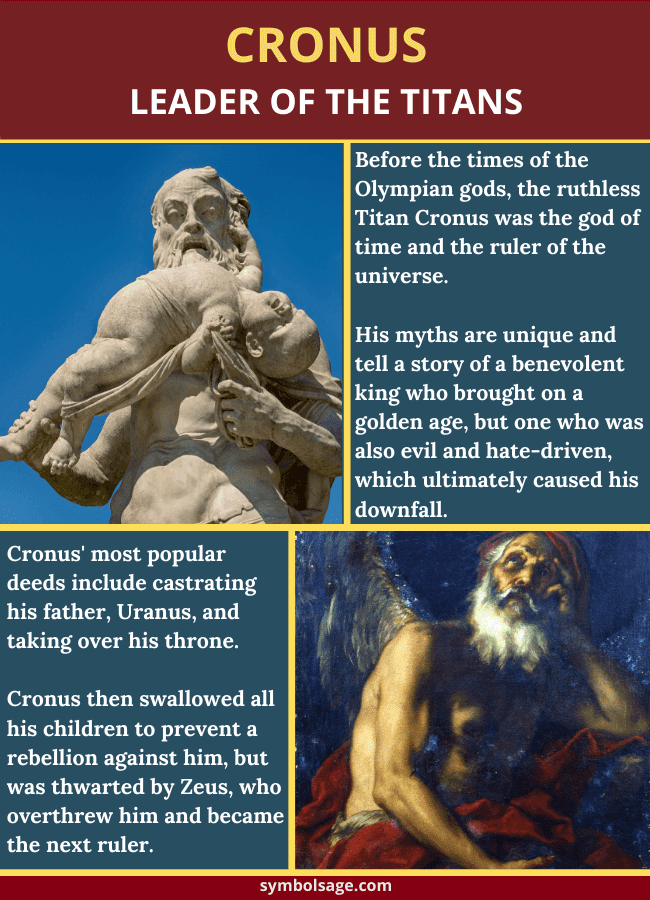
Related Articles
Rhea: The Titaness behind the Throne of Olympus
Ares – God of War in Greek Mythology and His Symbols
Hephaestus: The God of Fire and Forge in Greek Mythology
Aphrodite – Greek Goddess of Love, lust, and Beauty
The Divine Twins: Apollo and Artemis in Greek Mythology







